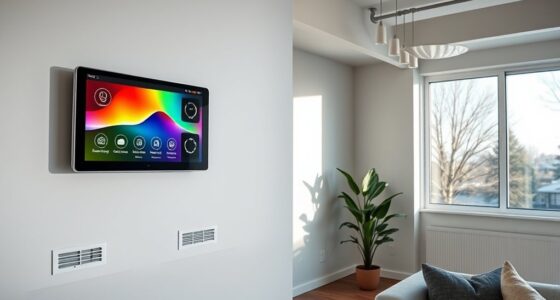Welcome to our feature on heat pump systems for temperature regulation! Our aim is to help you understand how these systems work, their benefits, and why they are a smart choice for improving energy efficiency.
With a wide range of options available, it’s important to know the different types of climate control systems with heat pumps and how to choose and install the right one for your needs.
Let’s dive in and explore this fascinating technology together!
Key Takeaways
- Heat pumps transfer heat from one area to another using refrigerants and a compressor.
- Climate control systems with heat pumps are more energy-efficient compared to traditional HVAC systems.
- They can extract heat from outside air or the ground in heating mode, and release heat from indoor air in cooling mode.
- Benefits of using climate control systems with heat pumps include increased energy efficiency, reduced environmental impact, energy savings, and consistent heating and cooling.
How Do Climate Control Systems With Heat Pumps Work
We’ll explain how climate control systems with heat pumps work.
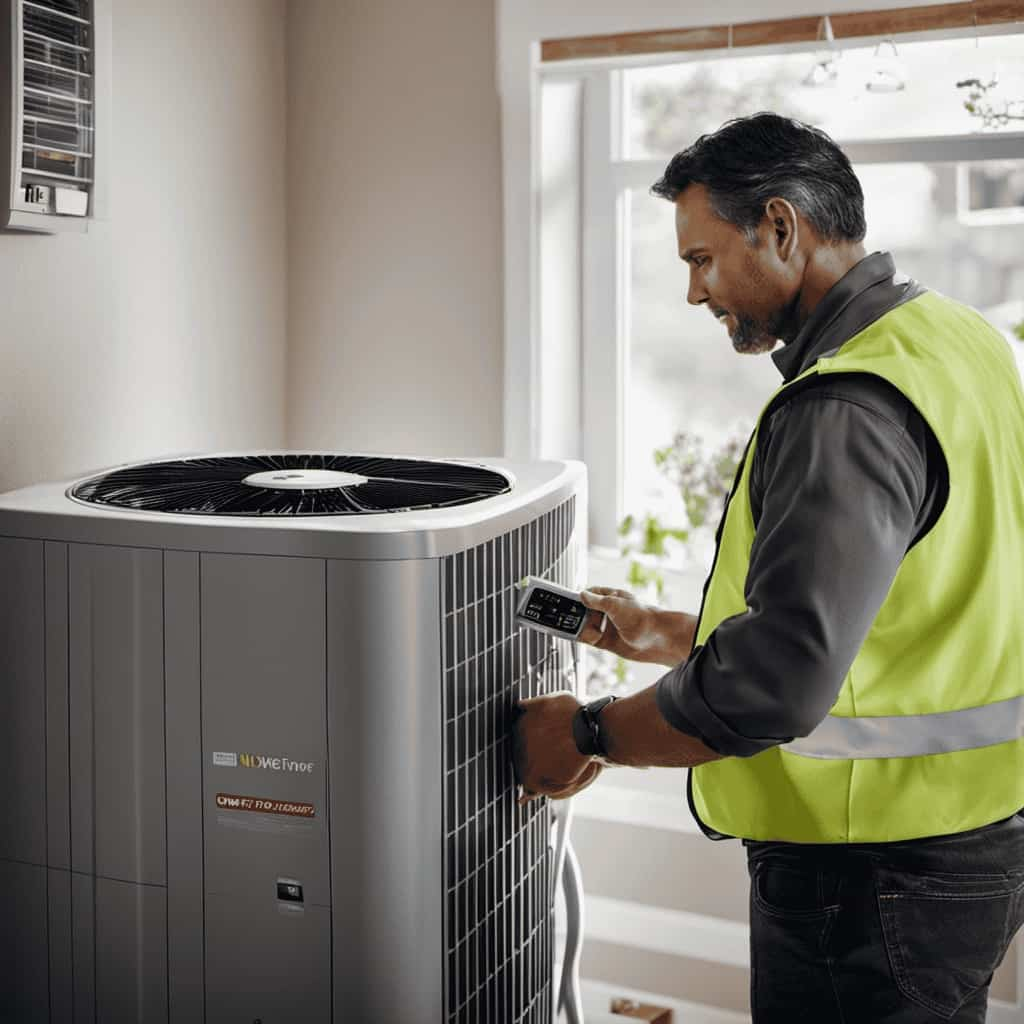
Heat pump technology is an innovative and efficient way to control the temperature of indoor spaces. Unlike traditional HVAC systems, which generate heat or cool air, heat pumps transfer heat from one area to another, depending on the desired temperature.
This process involves the use of refrigerants and a compressor to facilitate the transfer of heat. In heating mode, the heat pump absorbs heat energy from the outside air or ground and transfers it indoors.
Conversely, in cooling mode, the heat pump extracts heat from the indoor air and releases it outside. This heat transfer mechanism makes climate control systems with heat pumps more energy-efficient, as they don’t rely solely on energy consumption for heating or cooling.
Additionally, compared to traditional HVAC systems, heat pumps offer improved energy efficiency, lower operating costs, and reduced environmental impact.
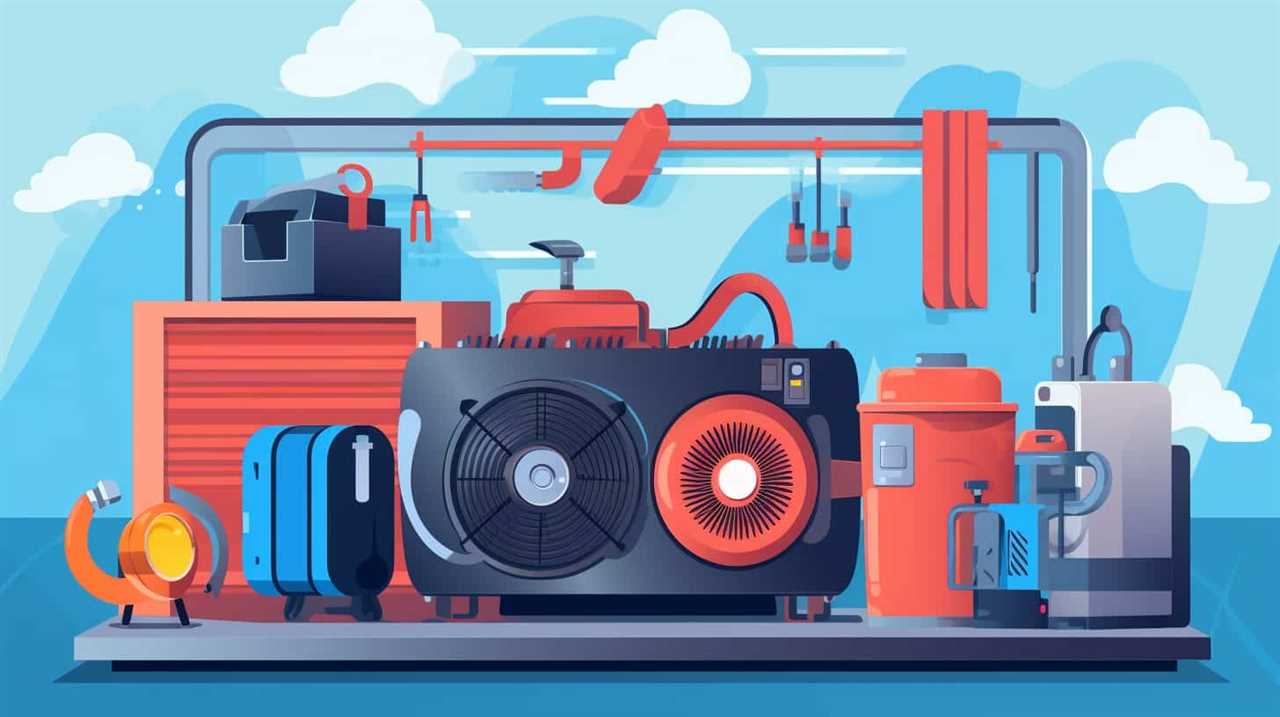
The Benefits of Using a Climate Control System With Heat Pumps
There are several benefits to using a climate control system with heat pumps, including increased energy efficiency and reduced environmental impact.
-
Energy Savings: Climate control systems with heat pumps are designed to provide efficient heating and cooling, resulting in significant energy savings. These systems use a small amount of electricity to transfer heat from one area to another, rather than generating heat through combustion like traditional systems. This results in reduced energy consumption and lower utility bills.
-
Environmental Impact: By using heat pumps, we can significantly reduce our carbon footprint. These systems don’t burn fossil fuels, which means they produce fewer greenhouse gas emissions. This helps to combat climate change and protect the environment for future generations.
-
Comfort: Climate control systems with heat pumps provide consistent and even heating and cooling throughout your home, ensuring optimal comfort all year round.
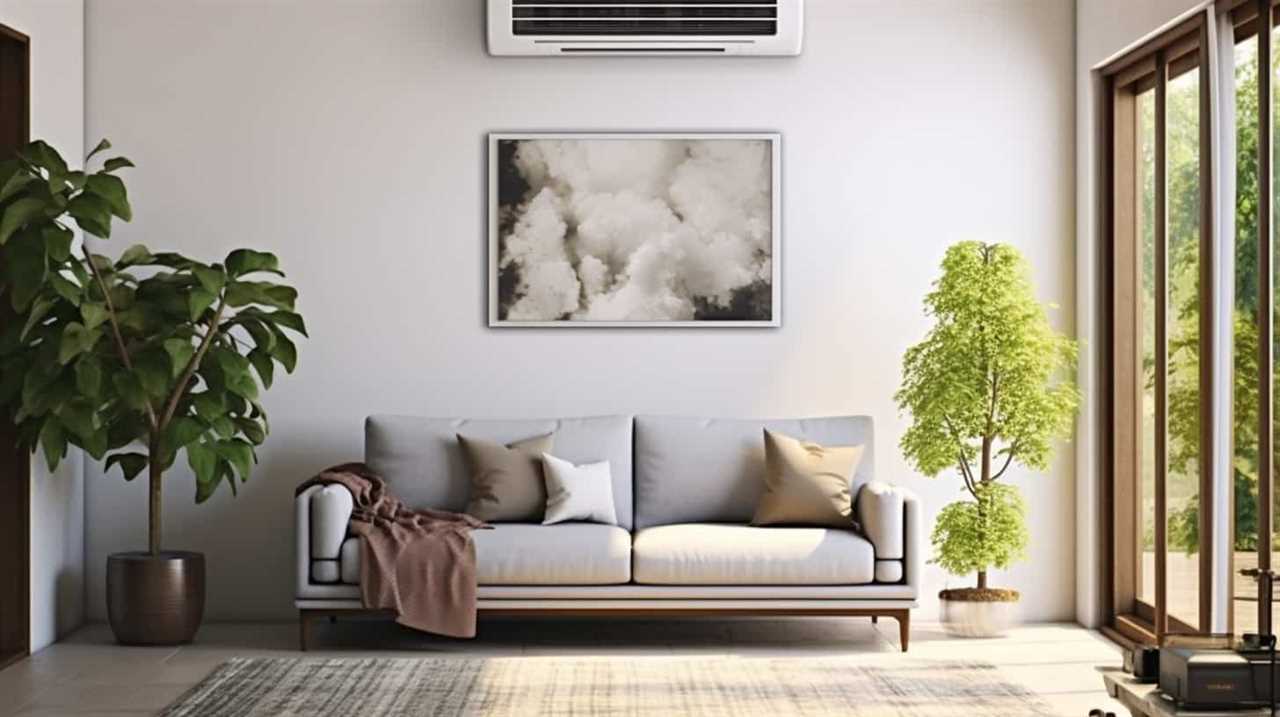
-
Longevity: Heat pumps are known for their durability and longevity. With proper maintenance, these systems can last for many years, providing reliable heating and cooling for your home.
When it comes to energy efficiency, climate control systems with heat pumps are a smart choice. They offer numerous benefits, including energy savings and reduced environmental impact, making them an excellent option for serving both your comfort needs and the planet.
Energy Efficiency: Why Climate Control Systems With Heat Pumps Are a Smart Choice
Increasing energy efficiency, climate control systems with heat pumps are a smart choice for homeowners. These systems utilize advanced technology to provide both heating and cooling, resulting in significant cost savings. Heat pumps work by transferring heat from one area to another, rather than generating it, making them highly efficient. By using the natural heat in the air or ground, heat pumps require less energy to operate compared to traditional heating and cooling systems.
This not only reduces energy consumption and utility bills but also minimizes the environmental impact. Heat pumps produce fewer greenhouse gas emissions, contributing to a cleaner and greener environment. With their superior energy efficiency and positive environmental impact, climate control systems with heat pumps are an excellent option for homeowners seeking to save money while reducing their carbon footprint.

In the next section, we’ll delve into understanding the different types of climate control systems with heat pumps.
Understanding the Different Types of Climate Control Systems With Heat Pumps
Let’s explore the various types of climate control systems with heat pumps. Here are four types that you should be familiar with:
-
Air-to-air heat pumps: These systems transfer heat between the indoor and outdoor air, providing both heating and cooling capabilities.
-
Water source heat pumps: These systems use water as the heat source or heat sink, making them ideal for areas with access to a water source such as a lake or pond.
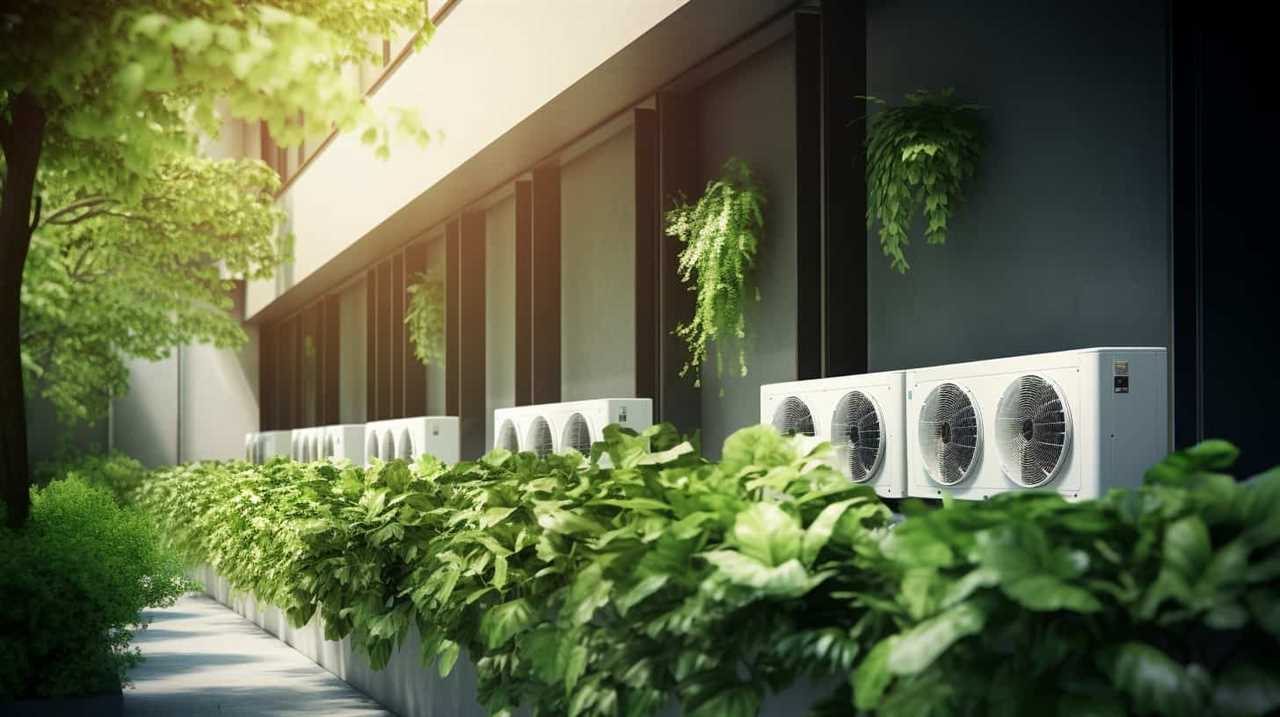
-
Geothermal heat pumps: These systems tap into the earth’s natural heat through a series of underground pipes, providing highly efficient heating and cooling.
-
Ductless mini-split heat pumps: These systems are perfect for spaces without existing ductwork, as they provide both heating and cooling without the need for ducts.
When it comes to common problems with climate control systems with heat pumps, issues such as refrigerant leaks, faulty thermostats, and airflow problems are often encountered. To ensure optimal performance, regular maintenance is key. This includes cleaning or replacing air filters, checking refrigerant levels, and inspecting electrical connections.
Tips for Choosing and Installing a Climate Control System With Heat Pumps
To ensure a successful installation and optimal performance, we should consider several tips when choosing and installing a climate control system with heat pumps.

Firstly, it’s crucial to choose the right heat pump for your specific needs. Consider factors such as the size of your space, climate conditions, and energy efficiency ratings. Proper sizing is essential to ensure that the heat pump can effectively heat or cool your space without overworking or underperforming.
Additionally, it’s important to properly maintain your climate control system to ensure its longevity and efficiency. Regularly clean or replace air filters, check for any leaks or obstructions in the system, and schedule annual maintenance inspections.
Frequently Asked Questions
Can Climate Control Systems With Heat Pumps Be Used in Both Residential and Commercial Buildings?
Yes, climate control systems with heat pumps can be installed in both residential and commercial buildings. They offer energy efficiency benefits by transferring heat instead of generating it, making them a cost-effective and environmentally-friendly choice for heating and cooling.
Are Climate Control Systems With Heat Pumps Suitable for All Climates or Are They More Effective in Certain Regions?
Climate control systems with heat pumps are suitable for all climates, but their effectiveness may vary. Factors like temperature extremes and insulation affect efficiency and energy savings. Proper maintenance and sizing are essential for optimal performance.
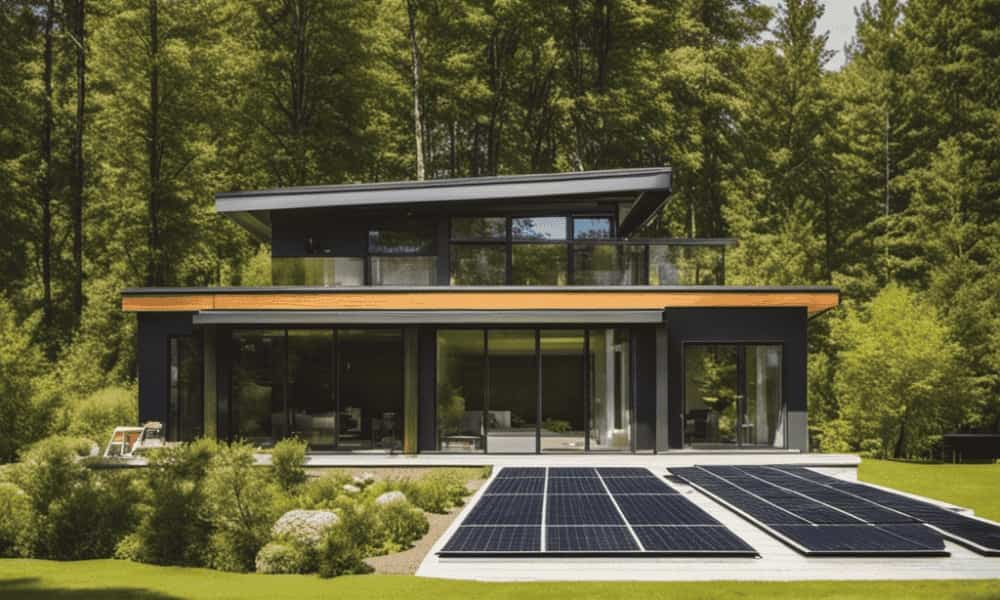
Can a Climate Control System With a Heat Pump Be Used as the Sole Heating and Cooling Source for a Building?
Yes, a climate control system with a heat pump can be used as the sole heating and cooling source for a building. It is an energy-efficient option that provides both heating and cooling capabilities.
What Maintenance and Servicing Is Required for a Climate Control System With a Heat Pump?
Maintenance requirements for a climate control system with a heat pump include regular filter replacement, cleaning of coils, and inspecting electrical connections. Servicing procedures involve checking refrigerant levels, lubricating motors, and ensuring proper airflow.
Are There Any Government Incentives or Rebates Available for Installing a Climate Control System With a Heat Pump?
There are government incentives available for installing a climate control system with a heat pump. These incentives aim to promote energy savings and can help offset the initial costs of installation.
Conclusion
In conclusion, climate control systems with heat pumps offer a highly efficient and energy-saving solution for maintaining a comfortable indoor environment. By utilizing the natural heat transfer process, these systems can effectively heat and cool a space while minimizing energy consumption.

With various types available, it’s essential to choose the right system for your specific needs. By considering factors such as size, efficiency, and installation requirements, you can ensure optimal performance and long-term satisfaction with your climate control system.




